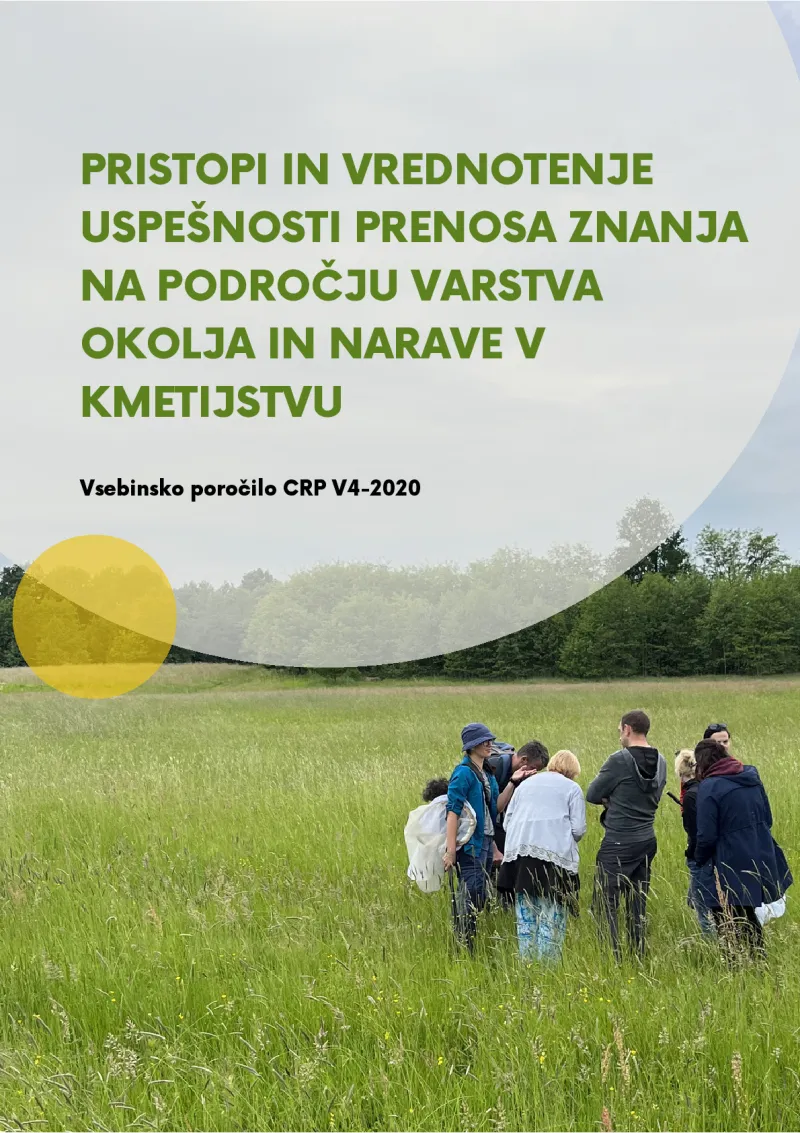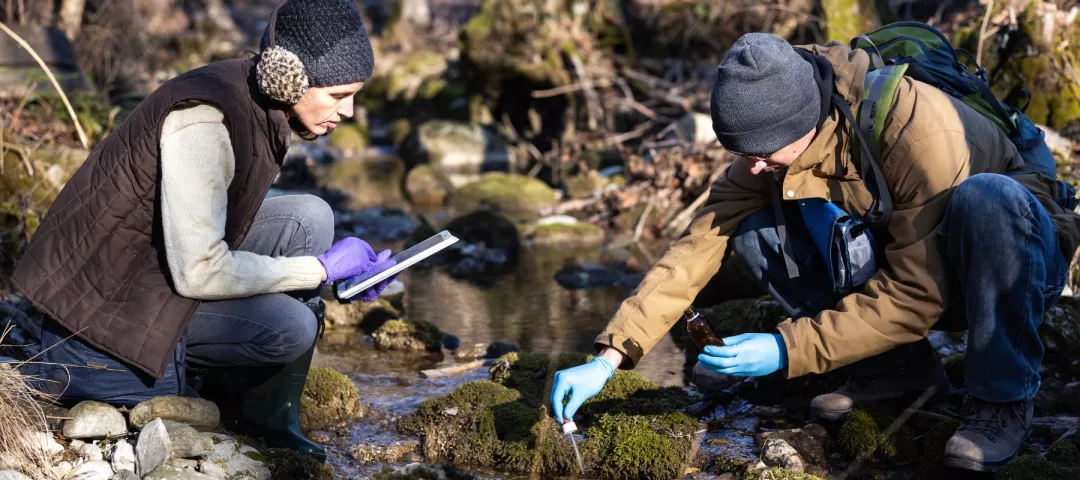Improving the processes of knowledge transfer and monitoring of environmental protection in agriculture
The evaluation reports on a research project that developed and tested a new indicator proposal for knowledge transfer measures in Slovenia.
- Slovenia
- 2014-2022
- Environmental impacts


This is a content report of the research project funded by the Slovenian Ministry of Agriculture, Forestry and Food and the Public Agency for Scientific Research and Innovation. The project was implemented from November 2020 to October 2023, addressing the 2014-2020 period and the current one.
The existing evaluation of knowledge transfer measures under the CAP is limited to measuring inputs and immediate results on:
- Developing and testing a new indicator proposal for knowledge transfer measures, which includes unifying output indicators and developing indicators and evaluation methodologies to assess the results and impacts of interventions.
- Two evaluations in the agri-environmental field were conducted: one aimed to analyse the effectiveness of participatory methods of knowledge transfer, and the other analysed the effectiveness of informing farmers about new environmental measures of agricultural policy using various communication strategies about environmental measures and problems through both positive and negative framing.
The research project developed a framework of indicators and related measuring instruments to evaluate knowledge transfer measures concerning the protection of nature and the environment in agriculture. Using secondary research, focus groups and surveys, the project used random-controlled experiments to assess the effectiveness of selected knowledge transfer approaches and information activities.
In terms of limitations, some caution is needed when interpreting results since farms in a control group ('without a letter') were not randomly defined and differed significantly from the farms that received the letter in certain indicators.
The limitation of the survey, which can explain the lack of the perceived impact of framing on the intention to enrol in the scheme, may also be the small size of the sample of responses received by post and the relatively low entry in the first year of implementation of the scheme since only 2.0% of the farms studied opted for enrolment, which is relatively expected given that this was the first year of implementation of the measure. The small size of the sample could thus have contributed to the fact that the research did not have sufficient statistical strength to detect the subtle effects of framing on intended and actual enrolment.
Regarding the proposal of indicators for knowledge transfer measures, the research concludes that output indicators point to a limited budget for knowledge transfer measures, a lack of capacity of agricultural advisors in the field under consideration and an unfavourable situation in the choice of knowledge transfer methods. Result indicators show overall satisfaction with mandatory training for the purpose of agri-environmental and climate (AEC) and organic farming measures but highlight the unfavourable situation in terms of content and design of training. Impact indicators point to the need to strengthen farmers’ knowledge of environmental and nature protection, as this can contribute significantly to the currently low interest in implementing measures and practices aimed at doing so.
Evaluation of the effectiveness of participatory methods of transfer of knowledge concludes that the participatory workshops carried out in the survey had a medium positive effect on the intention to implement agricultural practices for the management of livestock manure in the future. The average intention of participants to workshops was 19.1% higher than that of the control group. Participatory workshops also had a positive impact on participants’ knowledge. Participation in workshops helped to increase knowledge by an average of 25%. The intention to implement the practices discussed was more influenced by the habits of farmers in the survey than by attending the workshop.
The evaluation of the effectiveness of information shows that information sent by mail is an important and cost-effective approach to encouraging enrolment in new environmental measures. In the experiment, no statistically significant differences between the different ways of communicating (framing) affecting participation in the scheme were found. Further research is needed to analyse appropriate communication strategies with farmers.
Author(s)
Novak, A., Šumrada, T., Juvančič, L.
Resources
Documents
Approaches and Evaluation the Effectivness of Knowledge Transfer in the Field of Protection of Environmental and Nature Transfer to Agriculture
(PDF – 14.72 MB – 32 pages)